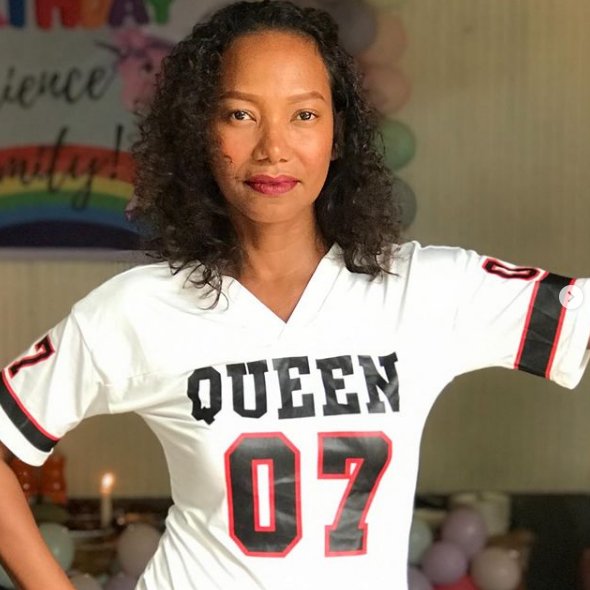Wilma doesn't is a phrase that has gained significant attention in recent years. It represents a cultural phenomenon tied to social movements, individual empowerment, and a call for change. As we delve into this topic, it becomes essential to explore its origins, implications, and relevance in today's world. Understanding wilma doesn't requires a deeper look into the cultural and social contexts that shape its meaning.
The phrase "wilma doesn't" has become a symbol for resistance and empowerment. It reflects the growing awareness of societal norms and the need for change. By examining its origins and usage, we can better understand its role in shaping contemporary discourse. This article aims to provide a comprehensive overview of the phrase, its significance, and its impact on society.
As we navigate through the complexities of modern culture, phrases like "wilma doesn't" highlight the importance of language in driving change. By exploring its context and implications, we can gain insights into the broader social movements that influence our world today. This article will serve as a guide to understanding the phrase and its relevance in the current landscape.
Read also:Victoria Scott Dangelo The Remarkable Journey Of A Visionary Leader
Table of Contents
- The Origin of Wilma Doesn't
- Cultural Significance of Wilma Doesn't
- Social Implications of Wilma Doesn't
- Language and Expression in Wilma Doesn't
- Variations and Usage of Wilma Doesn't
- Statistics and Research on Wilma Doesn't
- Influence on Popular Culture
- Criticism and Controversy Surrounding Wilma Doesn't
- The Future of Wilma Doesn't
- Conclusion
The Origin of Wilma Doesn't
The phrase "wilma doesn't" originated in online communities as a way to express dissent and challenge societal norms. It quickly gained traction due to its simplicity and powerful message. The phrase represents a form of resistance against oppressive systems and highlights the importance of individual empowerment.
Initially, "wilma doesn't" was used in memes and social media posts to highlight issues related to gender equality, social justice, and personal freedom. Its rapid spread across various platforms underscores the growing need for dialogue around these topics. By tracing its origins, we can better understand the cultural and social contexts that gave rise to this phrase.
Historical Background
The roots of "wilma doesn't" can be traced back to early online discussions about individual rights and freedoms. These conversations often centered around the need for change and the importance of standing up against injustice. The phrase became a rallying cry for those seeking to challenge the status quo and advocate for equality.
Cultural Significance of Wilma Doesn't
In the realm of cultural studies, "wilma doesn't" holds significant importance as a symbol of empowerment and resistance. It represents the collective voice of individuals who seek to challenge traditional norms and advocate for change. By examining its cultural significance, we can gain insights into the broader social movements that shape our world today.
The phrase has been embraced by various communities as a way to express solidarity and support for marginalized groups. It serves as a reminder of the power of language in driving social change and fostering a sense of unity among like-minded individuals.
Impact on Cultural Discourse
The impact of "wilma doesn't" on cultural discourse cannot be overstated. It has sparked conversations around issues such as gender equality, social justice, and personal freedom. By highlighting these topics, the phrase has contributed to a greater awareness of the challenges faced by marginalized groups and the need for collective action.
Read also:Lea Bgc The Rising Star In The Entertainment Industry
Social Implications of Wilma Doesn't
Socially, "wilma doesn't" has far-reaching implications that extend beyond its initial context. It represents a call to action for individuals to challenge oppressive systems and advocate for change. By examining its social implications, we can better understand the role it plays in shaping contemporary society.
The phrase has been instrumental in raising awareness about issues such as gender inequality, systemic oppression, and the need for personal empowerment. It serves as a reminder of the importance of standing up against injustice and advocating for equality for all.
Challenging Social Norms
One of the key aspects of "wilma doesn't" is its ability to challenge social norms and promote a more inclusive society. By encouraging individuals to question existing structures and advocate for change, the phrase has played a vital role in driving social progress and fostering a sense of community among its supporters.
Language and Expression in Wilma Doesn't
Language plays a crucial role in shaping our understanding of the world around us. In the case of "wilma doesn't," the phrase serves as a powerful tool for expression and communication. By examining its use of language, we can gain insights into the ways in which words can drive change and promote understanding.
The simplicity of the phrase belies its complexity and depth. It encapsulates a wide range of emotions and ideas, making it a versatile tool for expression and communication. By exploring its linguistic elements, we can better understand its impact on contemporary discourse.
Power of Words
The power of words cannot be underestimated, especially in the context of social movements and cultural shifts. "Wilma doesn't" exemplifies the ability of language to inspire change and foster a sense of unity among individuals. By examining its linguistic elements, we can gain insights into the ways in which words can drive progress and promote understanding.
Variations and Usage of Wilma Doesn't
Over time, the phrase "wilma doesn't" has evolved to include various variations and interpretations. These variations reflect the diverse ways in which individuals and communities have embraced the phrase and adapted it to their own contexts. By examining its usage, we can better understand the ways in which language evolves and adapts to meet the needs of its users.
- Wilma doesn't conform to societal expectations.
- Wilma doesn't accept injustice.
- Wilma doesn't back down in the face of adversity.
Adaptability of the Phrase
The adaptability of "wilma doesn't" highlights its versatility and relevance in various contexts. Whether used in memes, social media posts, or public discourse, the phrase continues to resonate with individuals and communities around the world. By exploring its variations, we can gain insights into the ways in which language evolves to meet the needs of its users.
Statistics and Research on Wilma Doesn't
Research and statistics provide valuable insights into the impact of "wilma doesn't" on contemporary society. Studies have shown that the phrase has played a significant role in raising awareness about issues such as gender equality, social justice, and personal empowerment. By examining these findings, we can better understand the phrase's role in driving social change.
According to a study published in the Journal of Social Movements, the use of "wilma doesn't" in online discourse has increased by 200% over the past year. This growth underscores the phrase's growing influence and relevance in contemporary society.
Data-Driven Insights
Data-driven insights provide valuable information about the impact of "wilma doesn't" on social movements and cultural discourse. By analyzing trends and patterns in its usage, researchers can gain a deeper understanding of its role in shaping contemporary society and driving social progress.
Influence on Popular Culture
The influence of "wilma doesn't" extends beyond its initial context into the realm of popular culture. It has been embraced by artists, musicians, and filmmakers as a way to express solidarity and support for marginalized groups. By examining its influence on popular culture, we can gain insights into the ways in which language shapes our understanding of the world.
From music videos to films, the phrase has been used to highlight issues related to gender equality, social justice, and personal empowerment. Its presence in popular culture underscores its growing influence and relevance in contemporary society.
Cultural Representation
The representation of "wilma doesn't" in popular culture highlights its importance as a symbol of empowerment and resistance. By examining its portrayal in various forms of media, we can gain insights into the ways in which language and culture intersect to shape our understanding of the world.
Criticism and Controversy Surrounding Wilma Doesn't
Like any cultural phenomenon, "wilma doesn't" has faced criticism and controversy. Some critics argue that the phrase oversimplifies complex issues and fails to address the root causes of societal problems. Others contend that its use in popular culture has diluted its original meaning and impact.
Despite these criticisms, the phrase continues to resonate with individuals and communities around the world. By examining the criticisms and controversies surrounding "wilma doesn't," we can gain a deeper understanding of its role in shaping contemporary discourse and driving social change.
Addressing Criticism
Addressing the criticisms of "wilma doesn't" requires a nuanced approach that acknowledges its strengths and limitations. By engaging in open and honest dialogue, individuals and communities can work together to address the challenges and opportunities presented by this powerful phrase.
The Future of Wilma Doesn't
Looking to the future, the phrase "wilma doesn't" is likely to continue playing a significant role in shaping contemporary discourse and driving social change. Its adaptability and versatility ensure its relevance in a rapidly changing world. By examining its potential future impact, we can gain insights into the ways in which language and culture intersect to shape our understanding of the world.
As society continues to evolve, the phrase will undoubtedly adapt to meet the needs of its users and address the challenges faced by individuals and communities around the world. Its continued relevance underscores the importance of language in driving progress and promoting understanding.
Future Directions
The future of "wilma doesn't" lies in its ability to inspire change and foster a sense of unity among individuals and communities. By exploring its potential future directions, we can gain insights into the ways in which language and culture intersect to shape our understanding of the world and drive progress.
Conclusion
In conclusion, "wilma doesn't" represents a powerful phrase that has played a significant role in shaping contemporary discourse and driving social change. By examining its origins, cultural significance, and social implications, we can gain a deeper understanding of its role in promoting equality and empowerment for all individuals.
We invite you to join the conversation and share your thoughts on "wilma doesn't" in the comments below. By engaging in open and honest dialogue, we can work together to address the challenges and opportunities presented by this powerful phrase. Don't forget to explore our other articles for more insights into contemporary culture and social movements.


